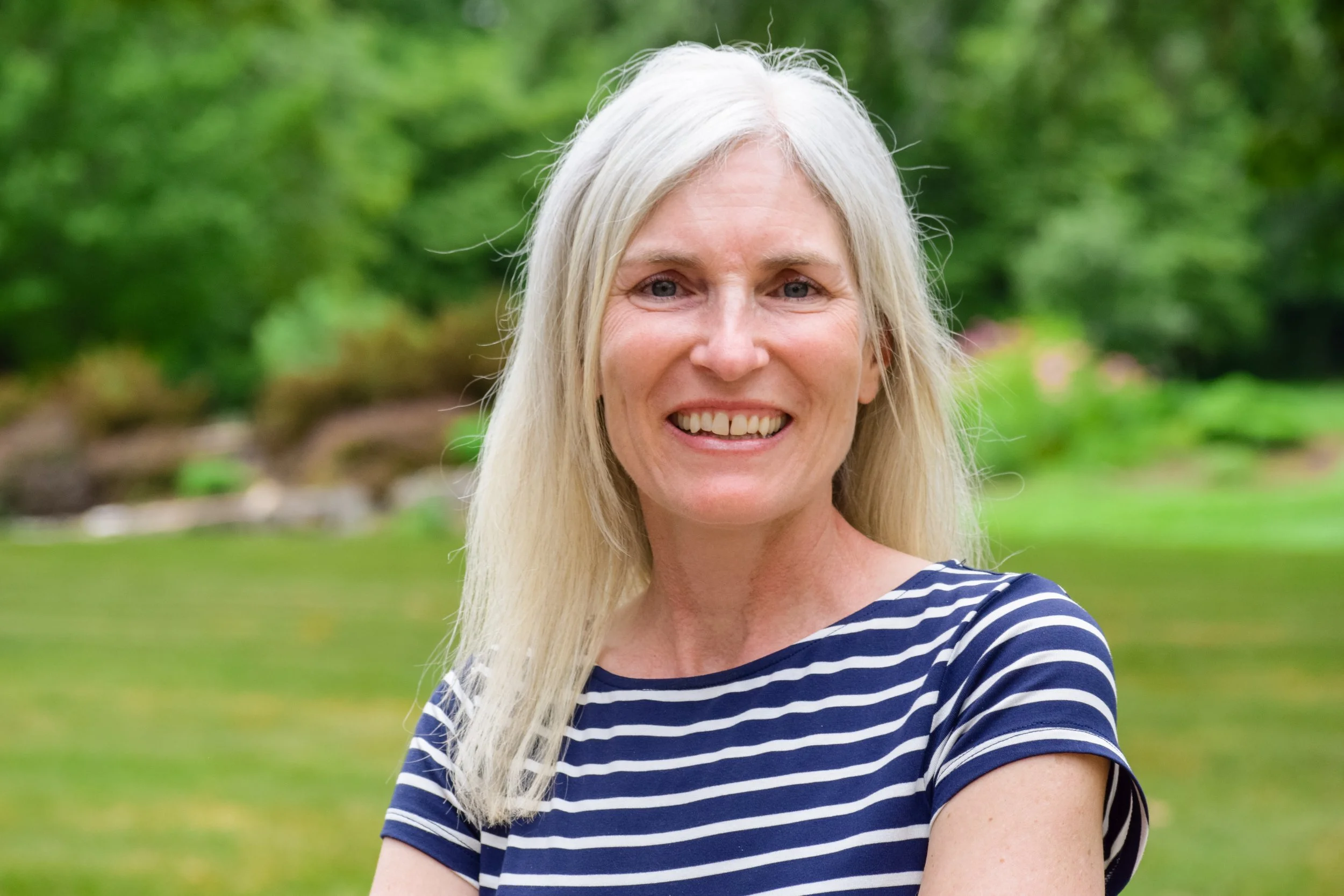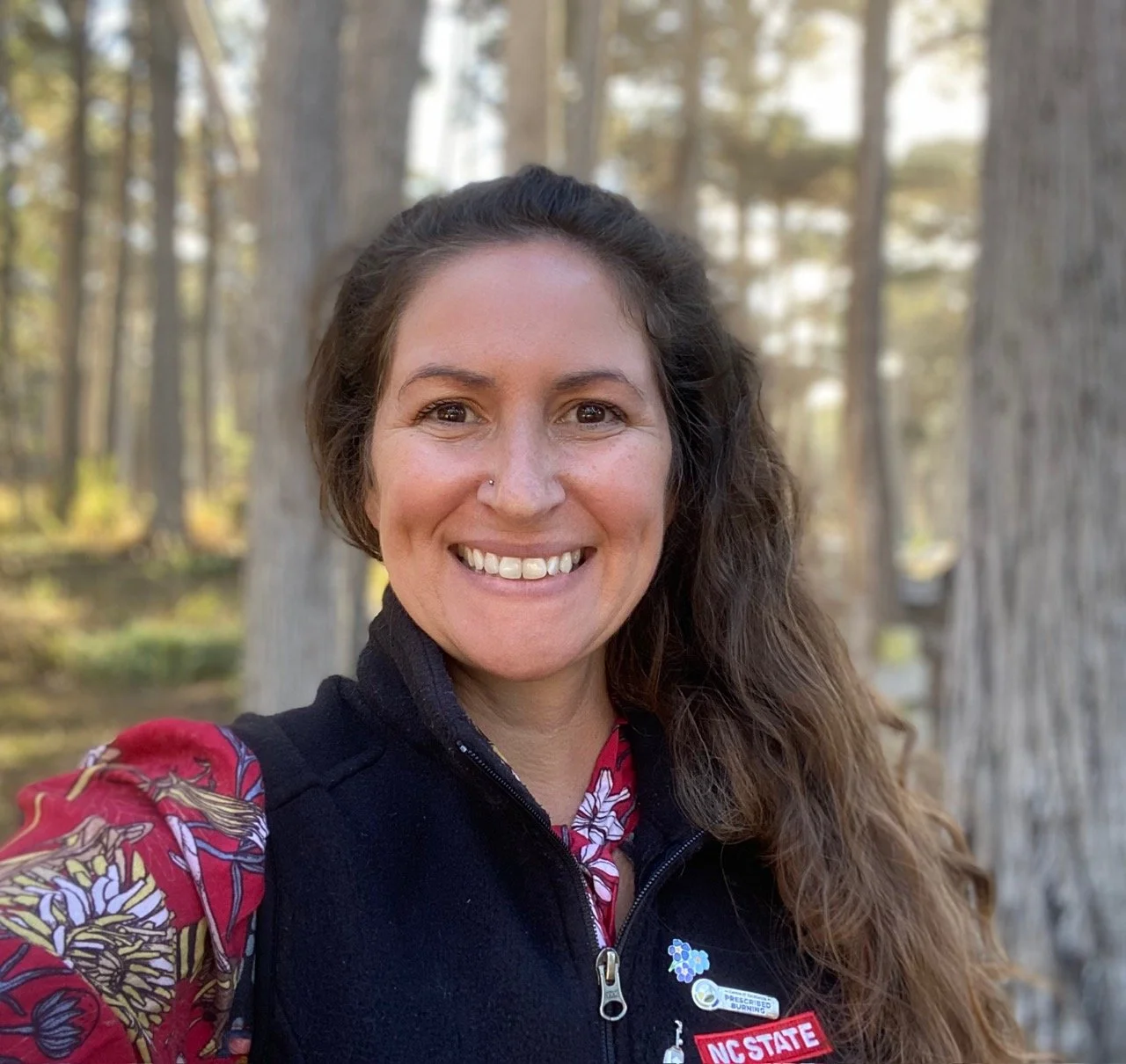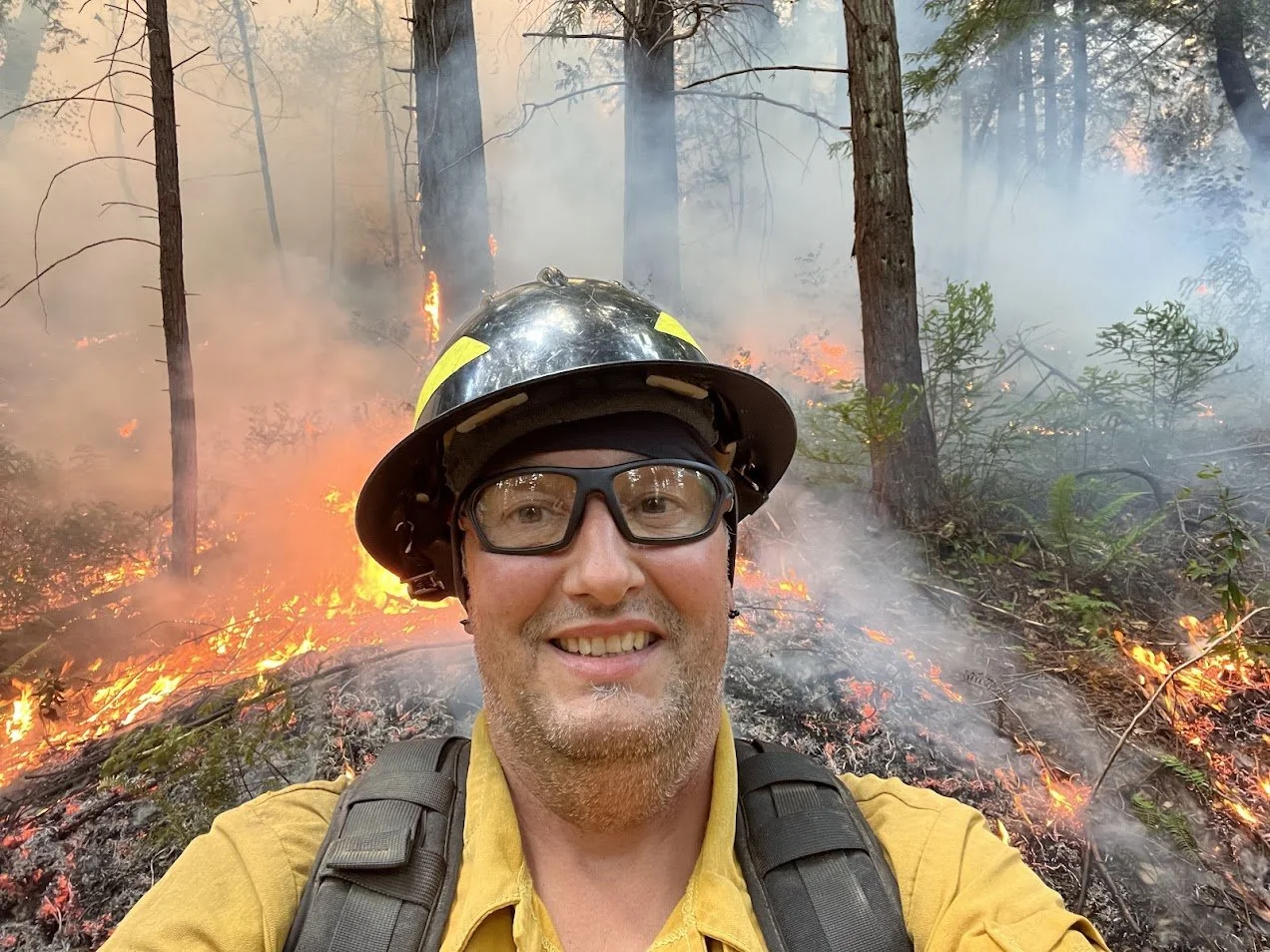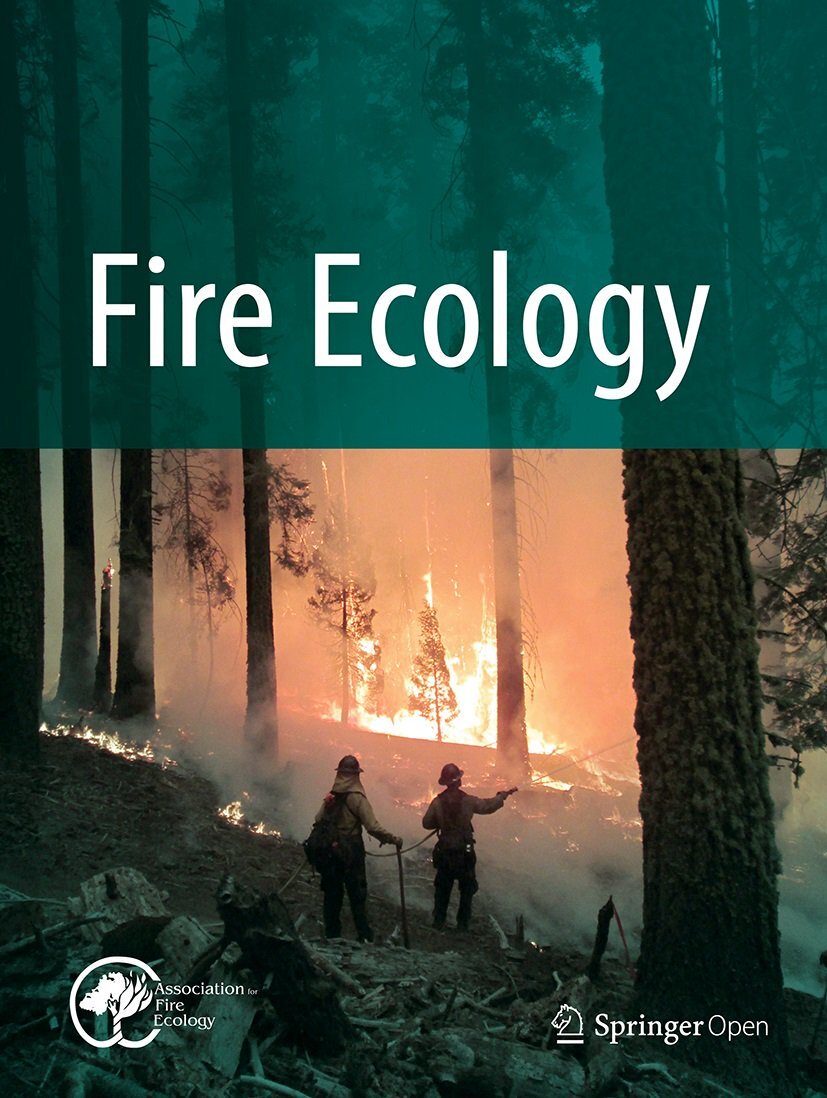Vice President
Lenya Quinn-Davidson
University of California Agriculture and Natural Resouces - Humboldt, California
Lenya Quinn-Davidson is a Fire Advisor and the Director of UCANR's Fire Network. Lenya’s primary focus is on the human connection with fire, and increasing the use of prescribed fire for habitat restoration, invasive species control, and ecosystem and community resiliency. Lenya works on prescribed fire issues at various scales, including locally in Humboldt County, where she works with private landowners to bring fire back as a land management tool; at the state level, where she collaborates on policy and research related to prescribed fire, and helps inspire and support prescribed burn associations; and nationally, through her work and leadership on prescribed fire training exchanges (TREX). Lenya is passionate about using prescribed fire to inspire and empower people, from rural ranchers to agency leaders to young women pursuing careers in fire management, and everyone in between.
President
Morgan Varner
Tall Timbers - Tallahassee, Florida
Dr. Morgan Varner is the Director of Research at Tall Timbers. He has a Ph.D. in Interdisciplinary Ecology from the University of Florida, an M.S. in Forestry from Auburn University, and a B.S. in Forest Resources from the University of Idaho. From 2014-2016, Morgan was the Chair of the Coalition of Prescribed Fire Councils, Inc. Prior to his position at Tall Timbers, Morgan was the Team Leader and Research Biological Scientist at the Pacific Wildland Fire Sciences Lab, USDA Forest Service Pacific Northwest Research Station.
Treasurer
Kurt Kipfmueller
Michigan State University - East Lansing, Michigan
Dr. Kurt Kipfmueller is the 1855 Professor of Indigenous and Tribal Natural Resource Management at Michigan State University. His research focuses on better understanding forest dynamics and changes over time using tree-ring dating techniques (dendrochronology). In particular, his interests center on disentangling climate and human influences on fire regimes to more directly address and mitigate present changes in forest patterns. His current research focuses on fire regimes of red pine forests in the Upper Great Lakes.
Secretary
Susan Prichard
School of Environmental and Forest Sciences, University of Washington
Dr. Susan Prichard is a research scientist at the UW School of Environmental and Forest Sciences (SEFS) with over 25 years experience in forest and fire ecology. Her research is centered around landscape fire ecology with an emphasis on wildland fire and fuels management. She is particularly interested in research to support forest adaptation to climate change, wildfires and other disturbances. Current projects include research on fuel treatment effectiveness, landscape dynamics of fire and vegetation, carbon and smoke tradeoffs, and wildland fuel consumption and smoke emissions. Outside of work, Susan enjoys running, mountain biking, hiking, Nordic skiing and spending time in forests and mountains.
Board of directors
Kori Blankenship
The Nature Conservancy
Kori Blankenship is a certified fire ecologist with The Nature Conservancy’s LANDFIRE team. She combines on the ground experience in forestry and fire with technical expertise in ecological modeling and spatial analysis to support conservation and land management efforts across the U.S. Her current projects focus on understanding contemporary and historical fire regimes, quantifying ecosystem conditions, and investigating trends in prescribed fire use. Previously Kori worked at the Missoula Fire Science Laboratory, the Wenatchee National Forest, and Rocky Mountain National Park. Kori holds a B.A. and an M.S. in Geography from Western Washington University.
Kimberley Davis
Rocky Mountain Research Station, USDA Forest Service - Missoula, Montana
Dr. Kim Davis is a research ecologist with the US Forest Service Rocky Mountain Research Station based at the Missoula Fire Sciences Lab. She is a fire ecologist whose research focuses on the resilience of conifer forests to fire and the implications for forest management. Kim earned her PhD in Ecology and Environmental Sciences at Montana State University where she studied interactions between woody invasive species and wildfire.
Rut Domènech
California Prescribed Fire Monitoring Program, UC Davis - Davis, California
Dr. Rut Domènech joined the AFE Board in April 2022. She is a fire ecologist employed at the University of California, Davis, where she leads the California Prescribed Fire Monitoring Program. She has spent her research career in Spain assessing forest effects under different types of fire regimes and prescribed fire, as well as understanding heather fire regimes in Scotland. She has also focused on mosaic dynamics and social management to improve rural areas' landscape resilience and adaptation to climate change. She holds a PhD in Pinus halepensis fuel types management from the Universitat Politècnica of Catalonia. Previously, she worked as a research ecologist and landscape manager within the UNESCO Terres de l’Ebre Region.
Catrin Edgeley
Utah State University - Logan, Utah
Dr. Cat Edgeley is an Assistant Professor in the Department of Environment and Society at Utah State University. She is a wildfire social science interested in understanding how diverse human communities adapt to wildfire across the western U.S. This has included research on support and opposition for forest management and policy, smoke adaptation, evacuation behaviors, and post-fire recovery among other topics. Cat earned her Ph.D. in Natural Resources from the University of Idaho, and an MSc and BSc from Durham University in the United Kingdom, where she is from. Cat joined the AFE board in December 2024.
Jennifer Fawcett
North Carolina State University, Extension Forestry - Raleigh, NC
Dr. Jennifer Fawcett is an Extension Specialist in wildland fire and a SAFE Advisor at North Carolina State University, working at the intersection of fire science, prescribed fire practice, and community-based education. She co-developed the Guidebook for Prescribed Burning in the Southern Region and coordinates the SERPPAS Wildland Fire Working Group, connecting practitioners, agencies, researchers, and policymakers across the southeastern United States. Her recent research examined adult learning, motivation, and training needs among Prescribed Burn Association members nationwide, advancing the concept of prescribed fire literacy. She holds a Ph.D. in Agricultural Education and Human Sciences from North Carolina State University, a M.S. in Forest Resources from Clemson University, and is committed to collaborative, inclusive approaches that strengthen fire-adapted landscapes and the people who steward them.
Paul Hessburg
UW-School of Environmental and Forest Science; OSU-College of Forestry - Wenatchee, Washington
Dr. Paul Hessburg is a Senior Research Ecologist with 45 years of experience in fire, forest pathology, and landscape ecology research. He is currently an Affiliate Professor with the UW-School of Environmental and Forest Science, and a Courtesy Professor with the OSU – College of Forestry. Paul’s research explores wildfire and climate change effects on the dynamics of large landscapes, the structure and organization of historical, current, and future landscape resilience, decision support modeling for large landscape management applications, and the ecology of forest reburning. He holds a PhD from Oregon State University and a BS from the University of Minnesota. Paul retired in late 2024 after a long career with the PNW Research Station.
Jeffrey Kane
Dept. Forestry, Fire, and Rangeland Management, Cal Poly Humboldt - Arcata, California
Dr. Jeff Kane has been engaged with fire-related research and management for over 20 years and continues to be a student of fire. He is currently a Professor of Fire Science and Director of the Fire Resilience Institute at Cal Poly Humboldt. He has taught many fire and forestry courses and has authored over 70 journal articles. His research broadly focuses on ecology, management, and restoration of fire-prone ecosystems in an era of rapid change. He is an Associate Editor of the journal Fire Ecology, Chair of the Northern California Prescribed Fire Council, and a Board Member of the Humboldt County Prescribed Burn Association. He holds a Ph.D. in Forestry from Northern Arizona University, M.S. in Forestry from Cal Poly Humboldt, and a B.S. in Environmental Science from SUNY Plattsburgh.
Frank Kanawha Lake
Pacific Southwest Research Station, USDA Forest Service - Arcata, California
Frank Kanawha Lake received a Bachelor of Science degree from University of California-Davis (1995) in Integrated Ecology and Culture with a minor in Native American Studies. He completed his Ph. D. graduate degree from Oregon State University, Environmental Sciences Program (2007). He works for the US Forest Service-Pacific Southwest Research Station in northern California on tribal and community forestry and related natural resource issues. His research focuses on restoration ecology and the incorporation of Indigenous knowledge into landscape restoration strategies, wildland fire and forest management in the Pacific Northwest and northern California.
Christina Restaino
University of Nevada, Reno Extension - Reno, Nevada
Dr. Christina Restaino is an Assistant Professor and Natural Resources Specialist, serving the state of Nevada, Great Basin, and Sierra Nevada regions. Her emphasis is on wildland fire science, forestry, and natural resource management. She is also the Director of the Living With Fire Program. Christina’s background is in applied forest and fire ecology. Her research has looked at the intersection of land management and forest resilience to fire, drought, and climate change. She has worked extensively in science outreach and communication, translating ecological principles to resource management and forest and fire policy. Christina’s work has spanned the western United States and has focused more recently in the Sierra Nevada region of California and Nevada.
Robert scheller
North Carolina State University - Raleigh, North Carolina
Dr. Scheller is the Associate Dean for Research in the College of Natural Resources at North Carolina State University (NCSU) and Professor of Landscape Ecology at in the Department of Forestry and Environmental Resources. He received his PhD in Forest Ecology from the University of Wisconsin-Madison. His research focuses on how landscapes have changed, how they will change, and why it matters. His research examines past and future landscape change due to climate change, disturbances, and forest management. His research informs policy choices, regionally and globally. Robert has published more than 100 manuscripts and book chapters.
Jens Stevens
USDA Forest Service - Seattle, WA
Jens Stevens is the Program Manager: Fire, Fuels & Smoke Research for the Pacific Northwest Research Station & Pacific Southwest Research Station with the US Forest Service. Jens has conducted wide-ranging research on forests in California, New Mexico, and elsewhere in western North America, which seeks to understand the drivers and ecosystem impacts of wildland fire at multiple spatial and temporal scales. Prior to joining the USFS, Jens was a place-based Research Ecologist with the US Geological Survey in Santa Fe, New Mexico. Jens has a Ph.D. in Ecology from the University of California Davis, where he studied interactions between fire, climate and forest management in the Sierra Nevada of California, and a M.S. in Plant Biology from the University of Vermont, where he studied fire-invasive plant interactions in the Florida Everglades.
afe staff
administrative director
Annie Oxarart
Association for Fire Ecology
St. Augustine, Florida
Annie Oxarart began working with AFE in June 2017. She enjoys serving AFE members, the wildland fire community, and creating opportunities for researchers, managers, and educators to interact. Prior to working with AFE, Annie was a Program Coordinator and Outreach Specialist for the University of Florida, School of Forest Resources and Conservation for 9 years. In this position, she worked for the Southern Fire Exchange, developed climate change curriculum materials and trained educators, and conducted research and evaluation projects. Annie received her M.S. degree in Forest Resources and Conservation from the University of Florida in 2008, with a focus on social science and human dimensions.
Communications and Program Assistant
Kjersten Peterson
Association for Fire Ecology
Minneapolis, Minnesota
Kjersten has a B.S. in Environmental Geography and an M.A. in Geography from the University of Minnesota. She is interested in science communication and the applications of dendrochronology, fire ecology, critical physical geography, climatology, and GIS to better understand the regeneration of fire-dependent species, the cultural and ecological significance of fire, tree growth-climate-fire dynamics, and humans in the environment in Minnesota, the Upper Great Lakes, and beyond.
Communications and program assistant
hannah hull
Association for Fire Ecology
Tampa, Florida
Hannah graduated from Florida State University in Spring 2023 with a B.S. in Public Relations and International Affairs, concentrating in Urban Planning. She spent the last year of her program studying permaculture education and global climate change at University of Sussex in Brighton, UK. While abroad she co-founded the Forest Food Garden Society, presented in the 2nd International Forest Garden / Food Forest Symposium, and served as a mentor for the Green United youth program. Growing up in Florida, she has seen first-hand the important ecological effects of prescribed burns as a vital land stewardship practice. Hannah is passionate about science communication and technical writing.
AFE Office contact info
PO BOX 50412
EUGENE, OR 97405
(541) 852-7903




















